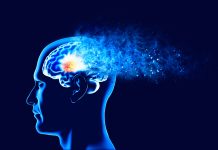Head of Research Dr Sara Imarisio brings to light emerging research on the link between epilepsy and Alzheimer’s disease, calling for more funding in vital dementia research
In 1906 a German physician Alois Alzheimer, first presented a clinical case of what is now known as Alzheimer’s disease.
His discovery was thanks to a 51-year-old woman, Auguste Deter, who sadly began to exhibit memory loss and behaviour changes at an earlier age. Alzheimer treated her at a hospital in Frankfurt and kept detailed notes before examining her brain after her death.
So, what is Alzheimer’s disease?
We now know Alzheimer’s disease to be the most common type of dementia, a condition that affects nearly one million people in the UK. Alzheimer’s is not a normal part of ageing, and it is caused by a mixture of age, genetics, and other lifestyle factors.
One hundred years on, and while researchers are working hard to understand the disease, there’s still no cure for it.
The link between epilepsy and dementia
While most people think of memory problems when they hear the word of dementia, the condition encompasses a range of complex symptoms, and it can affect people in many ways.
We know people with Alzheimer’s disease can have seizures, it was something Alois Alzheimer’s noticed himself over one hundred years ago
There’s also some, albeit limited, evidence which shows those living with Alzheimer’s disease have a higher risk of seizures and epilepsy than the general population.
What is clear is that seizures can have an enormous impact on people’s lives and can be particularly distressing for people with dementia who already face a range of challenging symptoms.
Seizures and the impact of them on people living with dementia
Hayley Harrison’s dad, Mike was diagnosed with Alzheimer’s disease in 2016. Even with his Alzheimer’s diagnosis, Mike still maintained an active social life, attending the curry club every two or three weeks with his friends and still went to the Cheltenham Races.Life was steady for a couple of years; however, things got a lot worse after he started experiencing seizures. Mike experienced his first big seizure in 2018 and doctors eventually diagnosed him with epilepsy the following year.
While little is known about the influence of epilepsy on the development and progression of Alzheimer’s disease for Hayley and her family, it was apparent that a big piece of Mike disappeared after every seizure.
Is there a risk of injury?
After one seizure doctors noticed fractures in Mike’s spine. And as Mike’s condition progressed, the more seizures he had the more it would damage his bones. While this stands to reason, there’s also little research to give a definitive answer about the impact of seizures on memory and thinking and whether there’s an increased risk of injury.
Why it is important to shine a light on dementia and epilepsy
It remains important that doctors need to be aware of the increased risk of seizures in people living with dementia, so that they can provide their patients with the best possible diagnosis, treatment, and support.
Mike was diagnosed with epilepsy in 2019. This is important, as although seizures are commonly associated with epilepsy, research also indicates that people with dementia are at an increased risk of different seizure types, and we need to get to the bottom of why this is the case.
It also allowed the doctors to prescribe treatment, and while Mike initially had a bad reaction to one of the drugs prescribed, new medication for his epilepsy made him much calmer.
The need for more dementia research funding
What we really need to see is more investment from governments into dementia research. Dementia is the only major condition where there are no treatments to slow or stop the progression of the disease. With more funding, we could increase the number of dementia researchers and the number of research studies, including those looking at the link between epilepsy and dementia.
We could work to detect dementia before symptoms appear, raise more awareness of the ways people can decrease their risk of dementia and invest in new treatments.
Sadly, this will all be too late for Mike, who passed away 13th May 2020 aged 62.
Mike was taken away too young. But with sustained, increased funding in dementia research we can create a future where families like Hayley’s will no longer have to deal with the devastating consequences of the condition.
Anyone who has dementia or is caring for someone with the condition who has concerns about their symptoms should consult their doctor. For information about dementia, research into the condition or taking part in research, contact Alzheimer’s Research UK’s Dementia Research Infoline on 0300 111 5111.








